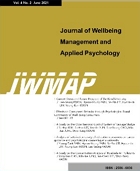- 권한신청
- E-ISSN2586-6036
- KCI
A Study on Securing Objectivity in Small-Scale Environmental Impact Assessments Using Delphi Analysis
Ju-Yeon LEE (SM Environment & Consulting.CO.,LTD)
Woo-Taeg KWON (Department of Environmental Health & Safety, Eulji University)
Abstract
Purpose: Since August 2000, the small-scale environmental impact assessment system has prevented indiscriminate development. However, its qualitative reports lack objectivity and consistency. This study analyzes these issues through literature and expert surveys and proposes improvements. Research Methodology: Samples were selected based on regional consultation numbers. Mitigation measures were categorized into qualitative and quantitative factors. Issues were identified, and improvements suggested. The Delphi method helped select evaluation items and propose a scoring table. Results and Conclusions: The Delphi method selected 14 absolute and 22 relative evaluation items, excluding 3 invalid ones. A 100-point scoring table was created, with points assigned based on element significance. A 1-point bonus was added for top-scoring elements to promote eco-friendly planning.
- keywords
- Small-scale environmental impact assessment, Qualitative and Quantitative assessment factor, Delphi Method, Environmental Impact Assessment Information Support System(EIASS)
- 다운로드 수
- 조회수
- 0KCI 피인용수
- 0WOS 피인용수















